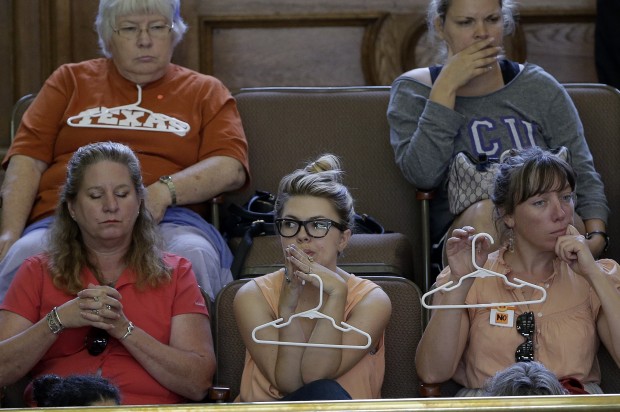Texas, like so many other states in the country, is in the middle of a reproductive health crisis. As a result of the state’s sweeping new abortion restrictions (and years of Republican-led assaults on clinics and women’s health programs), 34 clinics have been forced to scale back services or cease providing abortions altogether; 12 clinics have closed outright. Shuttered clinics and reduced services have created access deserts when it comes to abortion, leaving thousands of women across the state — particularly in the Rio Grande Valley region — with no meaningful way to obtain reproductive healthcare.
But this isn’t how Judge Edith Jones of the 5th Circuit sees it. During a Monday hearing on the law, lawyers for the Center for Reproductive Rights explained that women in Rio Grande Valley must travel 300 miles round-trip to the nearest clinic in order to access basic medical care, to which Jones replied, “Do you know how long that takes in Texas at 75 miles an hour? This is a peculiarly flat and not congested highway.”
Jones — a conservative judge with a record of supporting anti-choice laws — expressed skepticism throughout the hearing that the new abortion restrictions placed any burden on women trying to access the procedure.
As Tara Culp-Ressler at ThinkProgress notes, Texas law currently requires women seeking an abortion to undergo a forced ultrasound, mandatory counseling and a 24-hour waiting period. What this means in practice is that women traveling 150 miles to the closest clinic will have to make this trip twice in order to meet these requirements, or find lodging or housing to remain near the clinic overnight. This can be costly no matter what, but for low-income women forced to take time off work or find childcare in order to make their appointments, it can be an insurmountable barrier to access.
Jones also assumes that all Texas women have reliable access to transportation and money for gas, and can just take off in their cars to make it to the nearest clinic. This is simply not the case, and to pretend otherwise reveals the profound lack of perspective (and compassion) she has about the challenges women face in Texas right now.
Reproductive rights groups know they face an uphill battle challenging the law in the conservative 5th Circuit, but they have no other choice. The stakes are simply too high not to fight.
Amy Hagstrom Miller, the president of Whole Women’s Health, testified at the Monday hearing in order to explain this to Jones and the two other judges. “Texans have a long way to go to restore justice to women. Our rights should not be determined by our zip code,” Hagstrom Miller said in a Monday statement. “We cannot allow so many of our people — in the Valley, in West Texas, in East Texas — to be left out of basic human rights to health and safety.”

